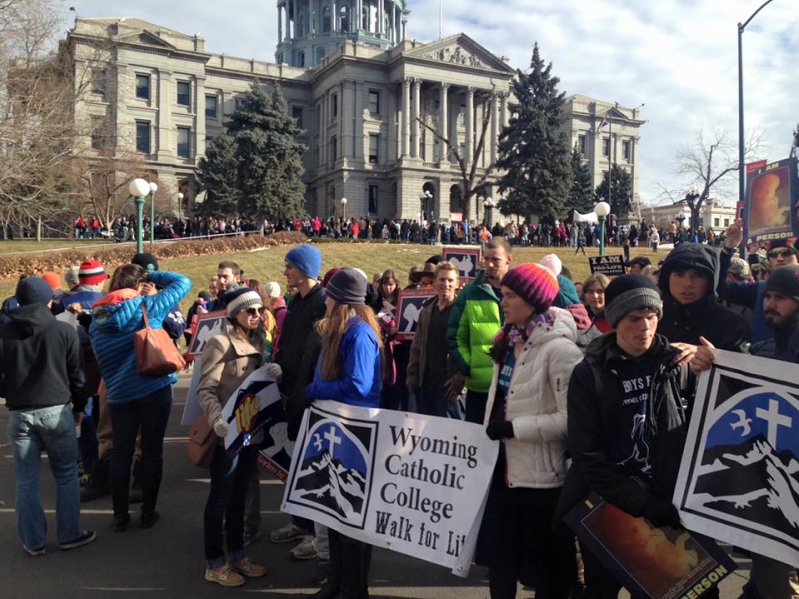
Because future religious freedom will be shaped by today's younger generation, Wyoming Catholic College faculty members are trying to form a "community of people who care about what's going on in the world," said Kevin Roberts, the college's president.
Roberts told the Catholic News Agency a number of "informal circles of conversation" among faculty, staff and students are being held on specific, current threats to religious freedom, such as the HHS contraception mandate, anti-discrimination statues and Title IX protections.
"We would much rather be focused on the formation of human persons," he said.
"It would delight us to not to have to worry about religious liberty beyond it being an academic topic."
But he said the reality is different in that the college must now teach students about their civic heritage of religious freedom, as well as "give them advice, and some practical tools for being involved in that fight."
At last month's Heritage Foundation panel on "Religious Liberty and the Future," Roberts said they are forming future leaders to deal with threats to religious freedom.
The college is a co-plaintiff with the Diocese of Cheyenne against the HHS mandate, in a case currently suspended before the 10th Circuit Court of Appeals. Students have been updated about this mandate case, Roberts told CNA.
Title IX "prohibits discrimination on the basis of sex in any federally funded education program or activity." While it is a good law, Roberts said the definition of sex discrimination could be radically expanded, which could establish new prohibitions that conflict with the Catholic identity of schools receiving federal funding.
To that end, Wyoming Catholic College cut ties with federally-funded student loans and grants.
"As we inform them [students] on those things, we update them on those things, they want to become more involved in what's going on there," he said.
Wyoming faculty are talking with students during lunch breaks now. "That's essential in Catholic higher education right now," Roberts said, noting "passivity and apathy" among many young people could be problematic.
Ultimately, however, he said these conversations must be prefaced with an intense spiritual and intellectual grounding for the students. "When we're talking about religious liberty, that's the fourth or fifth step in this formation."
The first step is the relationship with [God], and secondly the outward devotions, the signs, of course the sacraments, he said. "The third would be the building of the community, and then fourth is the knowledge. And then the fifth step is this kind of explicit participation in the public square."
Many students don't recognize heroes anymore, Roberts said. "The content, the substance, of curricula in American secondary education is abysmal, from a historical perspective. One of the things we don't do is get students to have a love for heroes in history, generally."
Thus, students "become very distrusting of leaders and of institutions, and then they don't even have the knowledge to understand that plenty of generations in American history have been asked to do heroic things, and they don't know what to do other than put their heads in the sand," he said.







